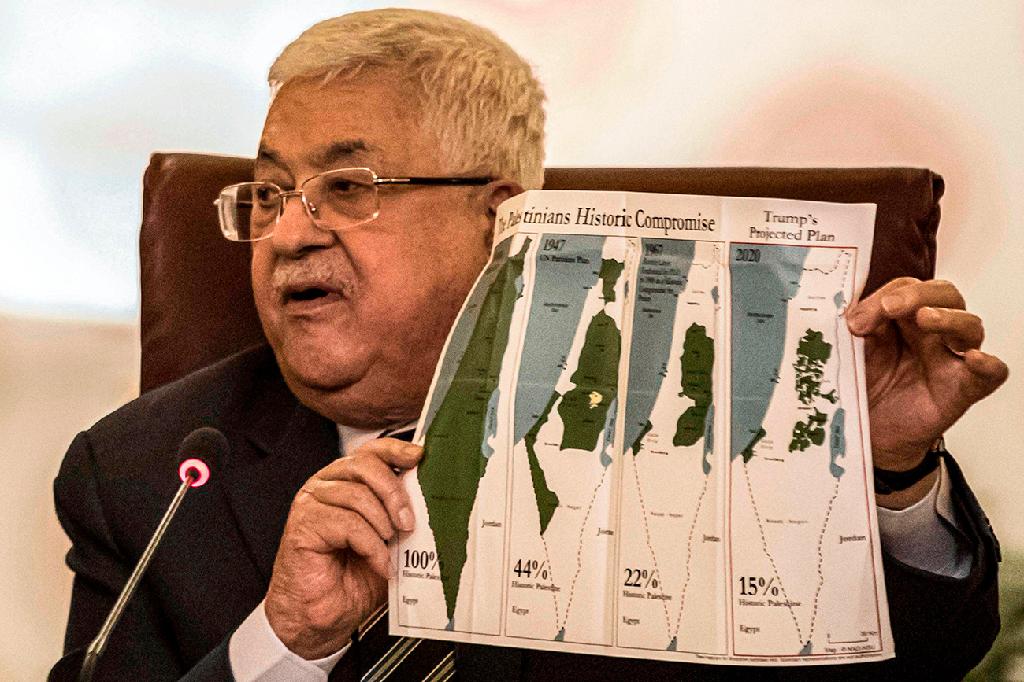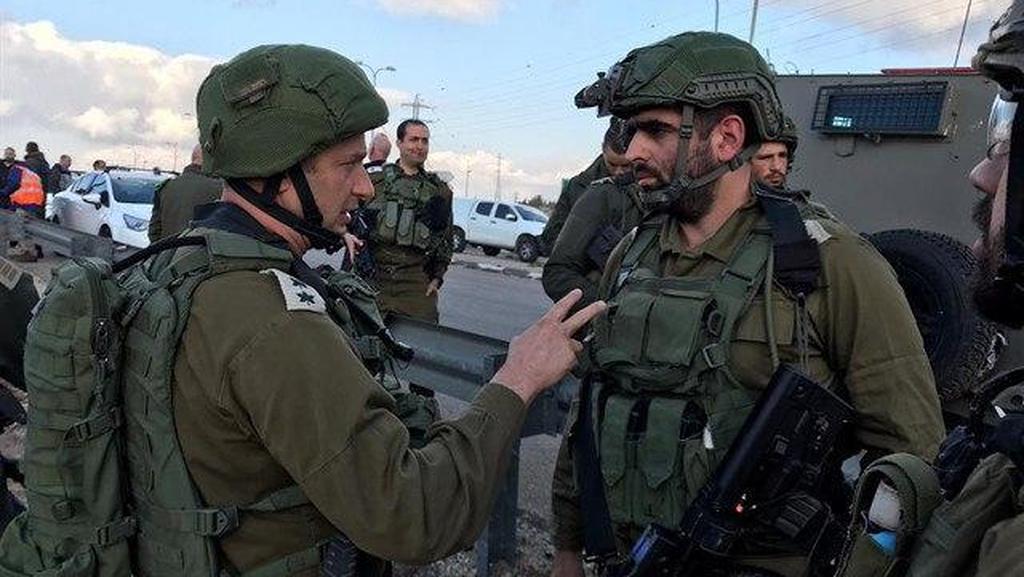Getting your Trinity Audio player ready...
Palestinian President Mahmoud Abbas' speech to Arab foreign ministers in Cairo on Saturday, in which he cut all ties to Israel and the U.S. over the Trump peace plan, was in effect a road map to dismantling the Palestinian Authority and returning responsibility for the West Bank to the PLO.
In other words, for Abbas, the Palestinian lands are again "occupied territory" - a move that legitimizes the resumption of armed conflict with Israel.
2 View gallery


Palestinian President Mahmoud Abbas reacts to the U.S. peace plan at a special meeting of teh Arab League in Cairo, Feb. 1, 2020
(Photo: AFP)
No more political clashes, time to go back to the intifada.
Israel is taking little notice of Abbas' announcement, given that this is not the first time in recent years that the PA has made this threat. On those occasions, however, it was Abbas himself who rejected such a move.
This time, it was Abbas himself who dropped the bomb in Cairo. He now intends to "get away" from the West Bank for an extended period during which he will embark on a diplomatic journey in the Arab states and Europe.
Abbas has not left any instructions on how to implement this new policy, nor will he be around to deal with any Israeli or American pressure.
In effect, Abbas is saying to the Palestinians: "Do what you want."
At the same time, he is telling Israel: "You have violated the agreements on the basis of which the PA was established, so we will have no further contact with you.
"And you, as the occupying force, are responsible for everything that happens on the ground. I will have nothing more to do with administering the area. We, the Palestinians, will not supply you with any more information, nor will we defend you against or respond to any security threats."
As of Saturday, the residents of the West Bank, the PA institutions and security services and Israel are all in a state of uncertainty.
From now on, whenever there is any trouble with the Palestinians, Israel will constantly have to take into account that previously smooth coordination with local security forces is now either non-existent or shaky at best. This means a high chance of clashes between two armed sides.
This means Israel should be on alert for chaos in the West Bank, at least until after the elections on March 2.
Abbas is apparently expecting such a deep schism in Israeli-Palestinian relations that it will trigger some sense of a security emergency in Israel: The West Bank will start to unravel, the crisis in the economic relationship between the two sides will deepen, and the Palestinian issue will take over Israeli discourse.
He may face some competition however, given that Israel is also preparing for the prospect of major clashes in the Gaza Strip again.


